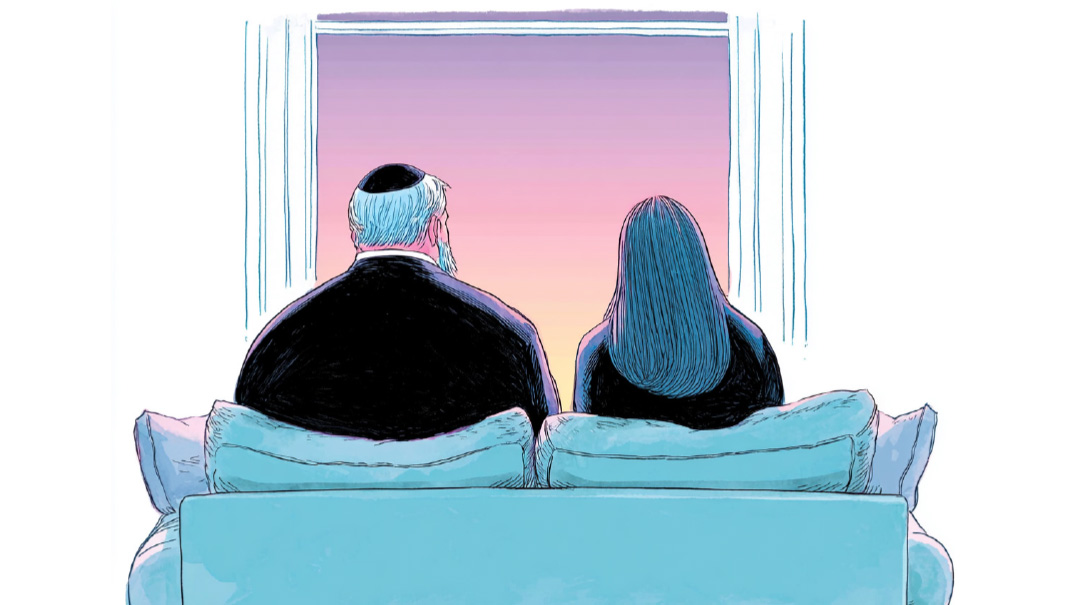Mindscape
| December 28, 2021When we treat others as their highest self, they feel understood, an important element in friendship and connection

Quick tips: to build friendships
Abby Delouya
Show up. Make and take opportunities for connection (called the exposure effect).
Smile. People are highly influenced by the moods of others; do your best to communicate positive emotions.
Consider friends of friends. This is a smooth way to widen your circles of friends and usually ensures a like-minded group dynamic.
Encourage and praise. Everyone appreciates a good word as long as it’s genuine. Just don’t go overboard; complimenting too frequently can have the opposite effect.
Reveal flaws. Showing your imperfections from time to time makes you relatable.
Expect good things. When we treat others as their highest self, they feel understood, an important element in friendship and connection.
Disorders Decoded: Post Traumatic Stress Disorder (PTSD)
(Not intended for diagnostic purposes; for nonmedical psychoeducation only)
PTSD is a mental illness that’s triggered after experiencing a shocking, frightening, or dangerous event. It’s natural to feel afraid during and after a traumatic situation. Nearly everyone will experience a range of emotions and reactions after trauma, yet most people recover from the initial symptoms naturally. Those who continue to experience problems may be diagnosed with PTSD.
Symptoms usually begin within three months of the traumatic incident and may include flashbacks, bad dreams, frightening thoughts, avoidant thoughts or feelings related to the event, the desire to avoid places that are triggers of the event, being easily startled, feeling tense and on edge, insomnia, angry outbursts, memory loss (especially about the traumatic incident), negative self-image, distorted feelings of blame or guilt, and loss of interest in enjoyable activities.
In children PTSD symptoms can look like regressions (e.g. bed-wetting), being unusually clingy, and acting out scary events during playtime. Most people who live through a traumatic event will not develop PTSD. There are many effective interventions for PTSD including various therapies and medication.
Trust Me
Trust is a vital component in any happy and successful relationship. If you trust your spouse you’re more likely to be open and giving. You’re also more likely to be forgiving of their shortcomings. Trust allows spouses to navigate conflict better, because you feel you’re aligned in most important issues.
To build and enhance trust: 1) Take responsibility for your mistakes and work to improve shortcomings. 2) Communicate openly. Secrecy tends to erode trust; transparency and vulnerability enhance trust in relationships.
In the News: Can stress actually be good for you?
A recent study showed that people can take stressful experiences and infuse them with purpose. For acutely stressful situations (versus chronically stressful situations), when we “reappraise” our stress, we can adaptively shift negative stress to beneficial stress. We may not always be able to eliminate stress, but we can use stress as a tool to help us succeed by learning how to reframe our stress response. As long as recovery and rejuvenation are part of the picture, try to embrace the stress in your life to achieve goals, avoid stagnation, and actualize your potential.
Abby Delouya, BA, BEd., RMFT-CCC is a licensed marriage and family therapist in private practice with a speciality in trauma and addiction. Abby lives in Monsey, NY, and maintains her practice in Canada.
Change That Lasts
Mrs. Dina Schoonmaker
Rav Wolbe breaks down the process of change in our avodas Hashem using the mishnah in Pirkei Avos: “Hevei az kanamer v’kal kanesher, ratz katzvi v’gibor ka’ari.” These steps apply to any type of improvement for the better, whether starting an organization, improving a relationship, making Fridays more calm…
Az kanamer
Being bold/initiating. Harness brazenness by daring to want things to be different. This will help you retain the energy to try to change things!
Kal kanesher
Rising above. It’s easy to get bogged down by the various aspects of the problem. Take the burst of inspiration and rise above the nitty-gritty details.
Ratz katzvi
Run with it. Make a solid plan and push forward. Act on the inspiration!
V’gibor ka’ari
Take it until the end. It takes courage to finish. Every year, a large percentage of college students drop out before doing their dissertation. Break the barrier, be it pushing past a fear of failure, getting beyond what people will think, or ignoring the fear of success.
Humanity Allowed
Sarah Rivka Kohn
Life’s challenges can make you bitter or better. That’s what they say. Loss makes you so grateful for every person in your life. Sometimes.
I wonder if we can swap the “or” with “and.” Can we be better people who also experience bitter moments? Can loss make you love more and also still feel frustrated with challenging family members? We may be a hopeful person and still feel hopeless in the face of pain.
Most of us are the sum of many parts. There are weeks, days, hours, or moments where we act and feel in a way that’s incongruent with who we are at our core. That’s a condition called being human and one of the worst ways to stay stuck is to judge our entire selves based on one sliver. Being nonjudgmental is actually the best way to effect change. It allows curiosity to creep in and challenges behaviors and beliefs, which in turn, can bring out our best selves.
Sarah Rivkah Kohn is the founder and director of Links and Shlomie’s Club, an organization servicing children and teens who lost a parent.
(Originally featured in Family First, Issue 774)
Oops! We could not locate your form.






